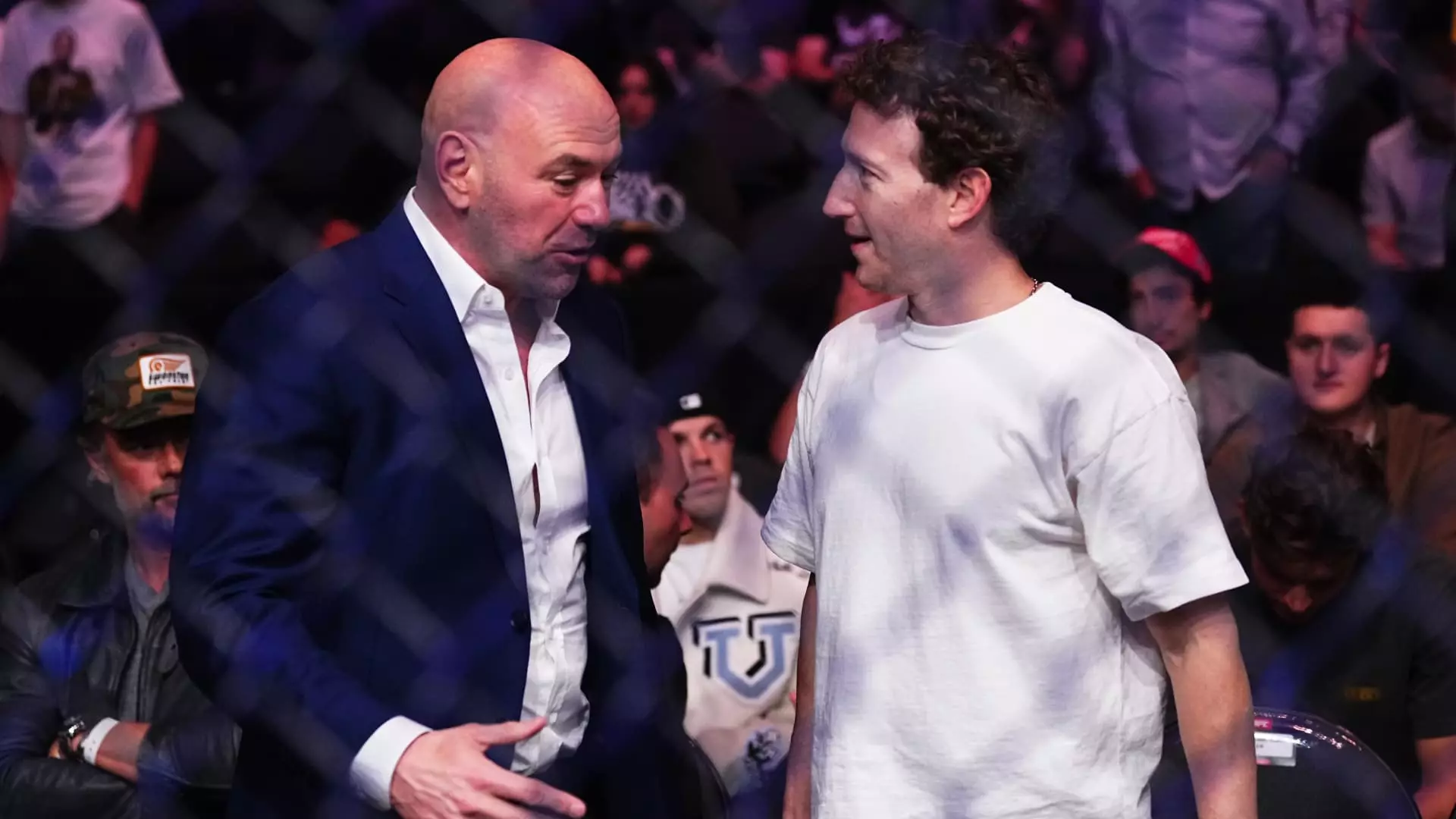In a time when octagonal combat sport is escalating to unprecedented heights, the recent multimillion-dollar partnership between the Ultimate Fighting Championship (UFC) and Meta raises alarm bells. As UFC President Dana White enthusiastically claims the collaboration will “blow away UFC fans,” one can’t help but ponder the implications of merging technology and mixed martial arts at such a deep, systemic level. With Meta serving as the UFC’s official fan technology partner, what was once a pure display of athleticism and competition is now at risk of becoming a commodified spectacle, curated by corporate interests that prioritize engagement over integrity.
The integration of Meta’s technology, from AI to social media platforms like Instagram and Threads, hints at a fundamental shift in how the sport engages with its audience—turning the fighters’ raw talent and hard-earned skills into mere avatars, filtered through lucrative algorithms that prioritize sensationalism. Imagine the AI-generated interfaces and manipulated viewer experiences designed to elicit dopamine responses, rather than an authentic appreciation of the fighters’ performances. The UFC, once a sanctuary for raw athleticism and an underdog spirit, may succumb to the whims of technological innovation, prioritizing profitability over the sanctity of the sport.
The Impact on Fan Experience
While the promise of exclusive content through Meta’s platforms sounds enticing, one must question: are fans truly the priority here? The idea that fans will have access to a superior viewing experience through “official technology” might seem progressive, but it raises the specter of over-commercialization. UFC fans deserve an arena where unfiltered competition reigns, not a carefully curated spectacle manipulated by corporate algorithmic intelligence.
Moreover, this partnership’s focus on enhancing viewership through technological means may not only saturate the MMA marketplace; it could also dilute the authenticity that has characterized the UFC. A heavy reliance on Meta’s virtual reality and AI technologies can shift focus away from the fighters’ skills, innovation in training, and the grit that defines the sport. Fans could find themselves in a world where engaging with the UFC means engaging with corporate branding more than the real emotion of competition.
Ethical Ramifications: The Zuckerberg Factor
It’s equally troubling to consider the ethical ramifications of this partnership, especially given Mark Zuckerberg’s controversial stance on masculinity and his overt enthusiasm for combat sports. The very idea he espoused, that corporate culture could gain from more “masculine energy,” raises flags about the undercurrents of hyper-aggressiveness that the UFC might increasingly embrace. Zuckerberg’s words suggest a readiness to commodify aggression, framing it as some form of virtue rather than recognizing the array of challenges and implications that aggression entails, both inside and outside the octagon.
Furthermore, Zuckerberg’s past comments about high-risk activities and the inherent dangers they present only complicate the narrative. By investing corporate resources into a high-stakes realm like the UFC, Meta runs the risk of redefining its corporate ethos to align with a narrative of aggression and risk tolerance. Fans and fighters alike may find themselves entangled in a web of ethically ambiguous practices fueled by corporate interests—where the maximization of audience engagement overshadows fighter safety and emotional well-being.
Broader Societal Implications
Where does this leave the overall perception of mixed martial arts? As the UFC embraces this partnership, it could inadvertently become a microcosm for broader societal issues—where monetization transcends genuine human connection and emotional narratives. When corporate behemoths begin to dictate the terms of engagement within the sports they sponsor, it can create an unsettling precedent for other leagues and organizations.
The potential normalization of treating athletes as content creators rather than competitors could reverberate across various sports, consequence be damned. In a culture fueled by likes, shares, and sensational moments, the lasting legacy of a fighter’s career may be measured in their profitability rather than their passion. This commercialization threatens to undermine the very ethos of sportsmanship and authenticity, injecting a poison into the spirit of competition that should remain untouched by corporate greed.
The partnership between the UFC and Meta may be positioned as a bold new frontier, but it’s imperative to question what kind of future the sport—and sports culture in general—envisions for itself. As mixed martial arts converges with technological advancement, the fight that truly needs to happen is the one for the soul of the sport.

